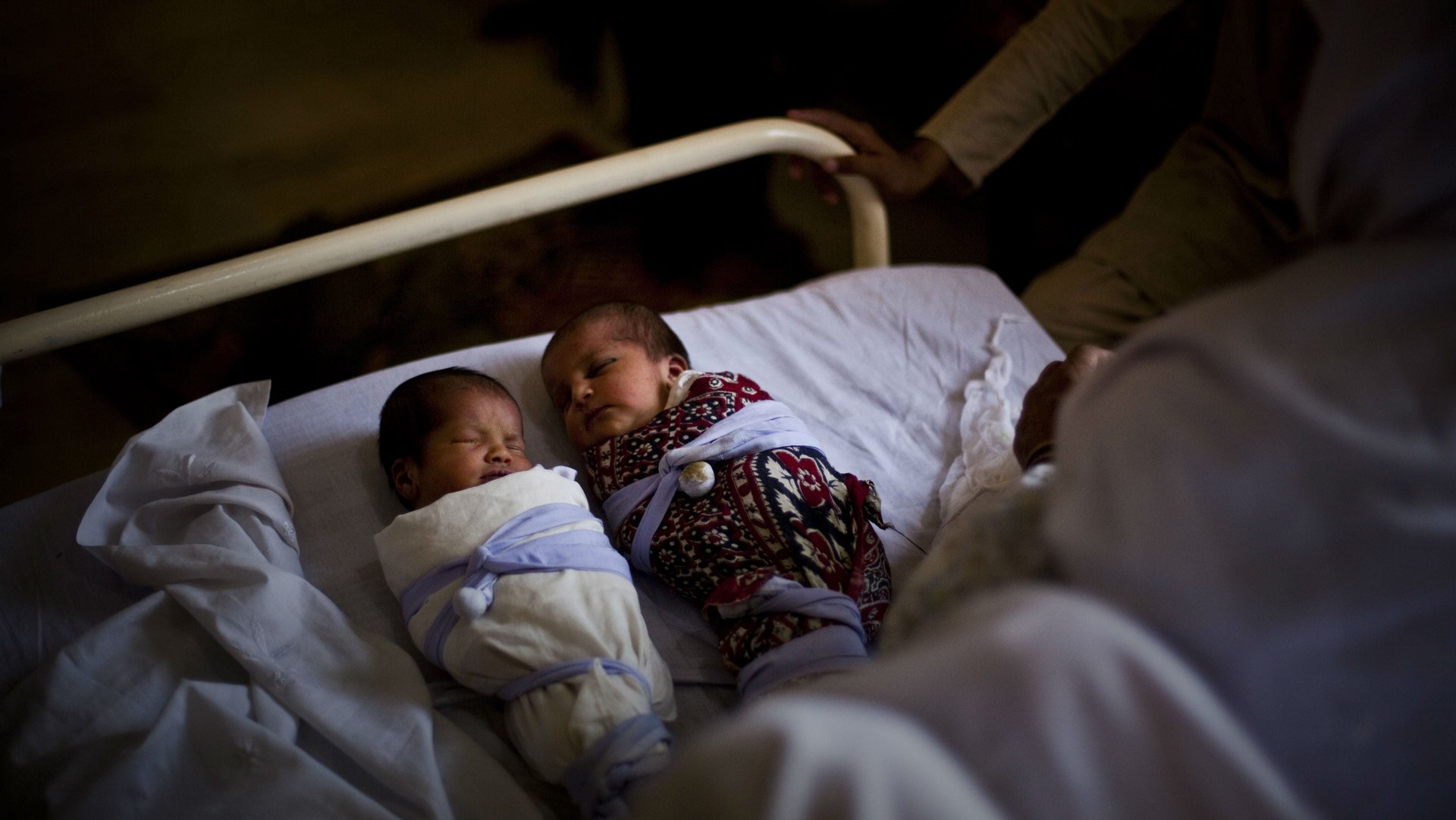How can a set of twins have completely different fathers?
Something didn’t sit right with the father: His twins looked starkly different, one with a full head of wavy hair and the other with fine, straight hair. He asked their mother for a genetic test to confirm that the children were actually his.


Something didn’t sit right with the father: His twins looked starkly different, one with a full head of wavy hair and the other with fine, straight hair. He asked their mother for a genetic test to confirm that the children were actually his.
Only one of them was.
According to test results announced by the Genetic Association of Vietnam, a set of two-year-old Vietnamese twins have been found to carry the DNA of one mother but two different fathers. Le Dinh Luong, president of the Hanoi-based organization, told the BBC that he was confident in the test’s accuracy.
It is possible for twins to have different fathers in a phenomenon called heteropaternal superfecundation, which occurs when two of a woman’s eggs are fertilized by sperm from two different men. Ordinarily, a woman becomes pregnant because one of her eggs has been fertilized by sperm. Identical twins occur if that fertilized egg divides into two separate eggs, early in the pregnancy. Fraternal twins occur when the woman simultaneously releases multiple eggs that become fertilized by different sperm from the same man.
In this case, the woman released multiple eggs within a week of one another. Within that narrow time frame, two eggs appear to have been fertilized by sperm from two different men. The product: fraternal twins with different fathers.
There have only been seven cases of twins with different fathers reported worldwide since 2011, according to the AP, including one case in the United States in 2015. In the 2015 case, fertility specialist Cynthia Austin of the Cleveland Clinic Women’s Health Institute, told CBS News that twins with two different fathers might even occur more regularly, but go unnoticed.